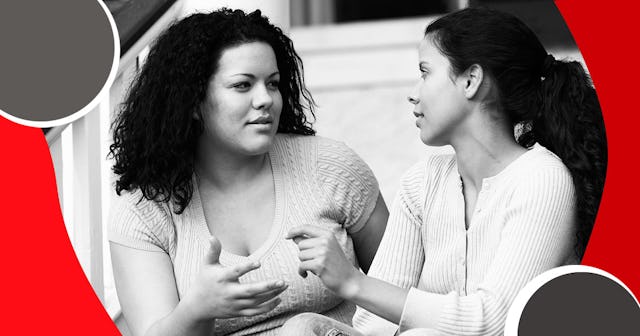Comparative Suffering Is No Good for Anyone

Almost everyone I know is at least a little bit unsettled and uncomfortable right now. Most of us are suffering the ill-effects of the coronavirus pandemic, whether that suffering is physical, emotional, financial or a little bit of each. This period of isolation, which initially looked like it would last a few weeks, has stretched on and on. Nothing is normal for most of us yet.
This is hard. I wish I could return to the time when I could live my life without worrying about a brand-new, sometimes deadly virus potentially ravaging our healthcare system or sickening someone I love.
Knowing that other people are hurting worse than I am might put things in perspective sometimes, but it brings me no comfort. The world is full of mourning right now. The collective grief the world is feeling adds to my heaviness. I hate to see anyone suffer. Empathy is part of the emotional load of this difficult time. Sometimes, I even feel a little bit of guilt for my own health and good fortune.
But this is just where we are right now. I can’t change it. COVID-19 is a reality, and we will be riding out this pandemic until something changes. It’s just the way it is. Almost everyone is going through something tough.
Let’s try to remember that when we start playing the mental games that compare our own suffering to anyone else’s.
Comparative suffering isn’t good for anyone. Our level of discomfort or challenge is not more or less valid based on how it compares to someone else.
I recently wrote that I missed my mom because the coronavirus pandemic meant she couldn’t travel to be with me on Mother’s Day. We haven’t seen each other in almost six months, and there is no end in sight. I acknowledged how lucky I am that she is alive and well, but expressed that we didn’t plan to be apart for this long, and I just miss her.
One person responded with, “Boo hoo. Talk to me when your mom is dead.”
That kind of attitude is dismissive, rude and unnecessary! Of course, I’d be much, much sadder if my mother was dead! I even said so!
But that doesn’t mean I can’t be a little bit sad that I don’t know when I’ll be able to see her again.
You can be sad without being the saddest. It’s not all or nothing. “A little bit sad” is a thing.
There’s enough to go around. It’s not a competition. Especially right now.
Most of us are good, strong, grateful, people who are just trying to make it through this bonkers season we’ve never been through before.
You don’t have an obligation to minimize your own sadness or anxiety because “it could be worse.”
I can think of things that would feel worse for me personally than a global pandemic, but it doesn’t mean I can’t be afraid and uncomfortable now. It also doesn’t mean those things are objectively worse. It’s just the way I feel, and feelings are reality when you’re in the middle of living with them.
You are allowed to feel overwhelmed, sad, anxious, depressed and angry.
You’ve never lived through anything like this on a global scale, and it’s normal and understandable for you to feel weighed down by it.
We don’t do this with positive emotions. You would pretty much never hear anyone say, “I’m so happy right now, but I know I really shouldn’t celebrate. It could be so much better.”
We can all recognize that happiness is relative. Each person feels different levels of joy based on our personal experiences. If you wouldn’t say it about happiness, you don’t have to say it about pain.
You have a right to feel the full weight of whatever kind of hard thing life has thrown your way without putting it on a scale next to someone else’s struggle.
Of course, it’s important to “read the room.” Right now, I wouldn’t walk up to someone who lost a loved one due to the novel coronavirus and complain about my anxiety, loneliness, or cabin fever. That would take a spectacular lack of self-awareness, social understanding, and compassion. I know that a person who is in the middle of deep grief is not the right sounding board for my stress.
But that doesn’t mean there is no right time or place for me to discuss my own feelings. In my safe circles of friends and loved ones, I speak freely. It’s important to have a place to voice our struggles, and everyone has a right to do that.
Don’t get me wrong: You can (and should!) totally acknowledge the ways that your suffering could be more disruptive to your life, or more deeply painful. I think it’s really important to keep things in perspective.
It is important to recognize the ways that you are not suffering. It’s even okay to be thankful for being spared those particular burdens. It’s not selfish to be grateful for the things that are still right-side-up in a world that feels so upside down.
Your feelings matter. You matter. Even if you can think of ways your life could be worse right now, it’s okay for you to feel like it’s pretty bad already.
It’s important for you to acknowledge that you’re hurting and seek the support you need. Comparative suffering doesn’t help anyone, and it’s time to lay the competition to rest.
This article was originally published on